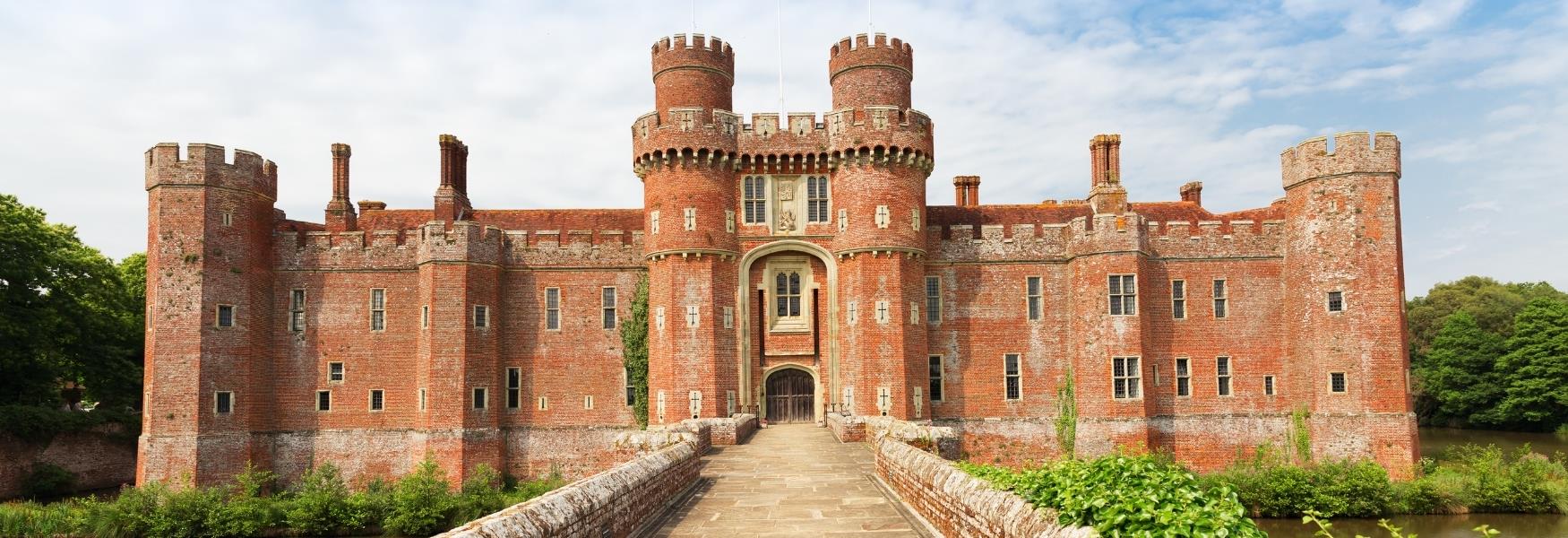To build your own Itinerary, click  to add an item to your Itinerary basket.
to add an item to your Itinerary basket.
Already saved an Itinerary?


You are here: UK History > Royal History > Royal mysteries
Everyone loves a good mystery and there are fewer more fascinating than those involving royals. Here are some of the most endearing royal mysteries.
Edward V and his younger brother Richard, aka the Princes in the Tower, are part of the best known mysteries in British history. After the death of Edward IV, his twelve year old son Edward was named as his successor, becoming Edward V, while his uncle, Richard the Duke of Gloucester, was assigned as Protector. This meant that he was to look after the kingdom and the young king until he reached his majority. However, Richard seemingly had other plans. He escorted the young king to London under the guise of taking him for his coronation and dismissed/imprisoned his entourage. On arrival, Edward was taken to the Tower of London, which was also used as a royal residence, especially prior to a coronation. The young king was later joined by his nine year old brother and neither were seen again.
Richard declared his nephews and their siblings illegitimate and took the throne for himself. It is widely believed that the two boys were murdered in the Tower, though who orchestrated it remains unknown. The remains of two children were discovered at the Tower much later, but they have never been conclusively identified as being the princes.
Throughout the reign of Richard’s predecessor, Henry VII, there were at least two occasions where people claimed to be one of the two princes and tried to amass support for the throne, though none succeeded and it has never been determined if either of them were the real princes.
Alexander III of Scotland is thought to have died while riding his horse through a storm, but was there something more sinister about his demise? In 1285, after losing his wife and his three children and under growing pressure to provide an heir, he married his second wife. However, within less than six months, he would be dead.
On the night in question, he had been at Edinburgh Castle celebrating his nuptials, however it was his wife’s birthday coming up and he was keen to get back to Fife to be with her. Despite the advise of his peers, he headed out on horseback in stormy weather, though not alone. He had an entourage of nobles and guides travelling with him, however, at some point in the journey he got separated from the rest of the party and the following morning was discovered with a broken neck. Despite there not being any cliffs where he was found, it was decided that his horse lost his footing on the rocks and he fell. His death caused a period of unrest across Scotland.
Elizabeth I is remembered for her greatness but did you know she was embroiled in a scandal after rumours emerged that she was involved in the murder of her lover’s wife? Elizabeth had had a close relationship with Robert Dudley since the pair were children and despite her reputation for being a virgin queen, there were several courtships, including one lasting relationship with Dudley, who she made the Earl of Leicester.
When this relationship rekindled however, Dudley was married to Amy Robsart, which prevented him from marrying Elizabeth, not that the union would have been allowed regardless.
Anyway, in 1560, Amy Robsart was found dead at the bottom of a staircase with a broken neck. Yes, it could have been a tragic accident, except weirdly she was home alone – the entire household were out that day at the local fair. Rumours began to swirl almost immediately that Elizabeth had grown tired of sharing Dudley and had arranged to have his wife murdered. Alternative theories were that Dudley orchestrated it so that he would be free to marry the queen and rise above his station which didn’t work out that well for him considering that Elizabeth was pretty against sharing her crown with anyone, whether she loved them or not.
The Duke of Cumberland was one of George III’s many children, so it is likely that he had his fair share of mysteries and scandals with his father’s illness and his brother’s bad behaviour. He likely didn’t expect to be part of an assassination attempt, however. On 31st May 1810, he returned home after attending a concert raising money for the Royal Society of Musicians. He went to bed but just a few hours later, he was woken by an intruder attacking him, he managed to escape the room despite having several injuries, shouting for his page. The pair grabbed some make shift weapons and made their way back to the room but found it empty with just a sabre on the floor, on further inspection, they found a previously locked door open and the Duke’s valet missing.
After some investigation, the household discovered the valet’s bedroom door locked from the inside, with the valet dead in bed from an apparent suicide. There were several rumours surrounding the incident, with some claiming that the valet had killed himself after failing to kill the duke. There were rumours that the Duke had made some moves on his valet’s wife, though others said that the valet was jealous of his closeness with his page, a man called Neal. Others still said that Neal and the Duke were lovers and that the valet was attempting to expose them.
The assailant and the reason for the death have never been uncovered.
Henry I was the youngest son of William the Conqueror and had a somewhat strained relationship with his older brothers William and Robert. After their father’s death, William was named King of England and ruled as William II and Robert inherited their land in Normandy – both somewhat larger gifts than Henry’s inheritance. Over the years, Henry would flit between his two brothers, changing his alliances to suit him and while serving in William’s court, accompanied him on a hunting trip in the New Forest.
During the trip, William was shot through the lung by an arrow, the shot coming from one of their party, who all abandoned the king. William's body was later discovered by a passing peasant. Henry meanwhile took the opportunity to rush immediately to Winchester where he secured the royal treasury and then on to London where he was crowned so quickly there wasn’t even an archbishop present.
Did Henry orchestrate the death of his brother to steal his throne? Was it a tragic accident? Did Henry just seize an opportunity? Either way, his behaviour immediately after his brother’s death is more than a little suspicious.
© Visit Heritage 2025. All Rights Reserved

.png)



